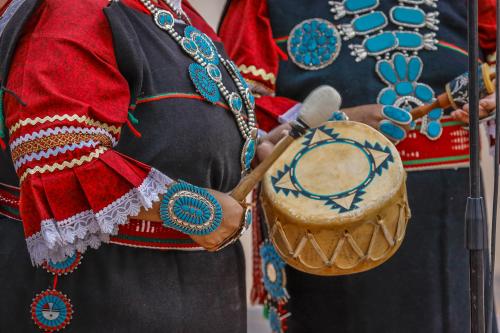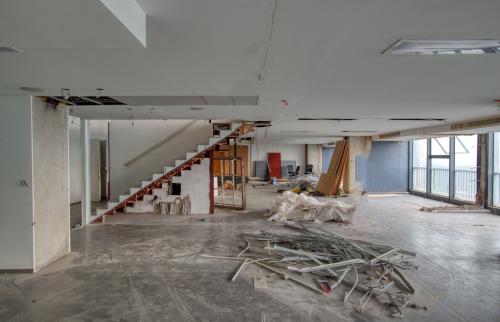Shell faces more corruption charges while Nigerian government imposes back taxes on oil companies
Last week, on Friday, Royal Dutch Shell announced that it would likely face prosecution on corruption-related charges in Netherlands linked to a 2011 oil deal in Nigeria. Shell and Italian energy company Eni are already defendants in an ongoing corruption trial in Italy linked to the same deal. Both companies have denied any wrongdoing in the Italian trial. In 2011, the two companies paid the Nigerian government $1.3 billion to end a dispute over exploration rights for an offshore block. However, it is alleged that most of the money went to Malabu Oil and Gas—a company linked to former oil minister Dan Etete—instead of the government. In addition, watchdog group Global Witness alleges in a recent report that the Nigerian government stands to lose $6 billion from the flawed deal. In late 2018, the Nigerian government announced that it would sue Shell and Eni in London to recover the funds.
In related news, Nigeria has demanded that foreign oil and gas companies pay nearly $20 billion in back taxes. The government sent notices to several companies including Royal Dutch Shell, Exxon Mobil, Eni, Total, and Equinor demanding between $2.5 billion and $5 billion from each. Addressing the tax notice, Equinor said that the company “sees no merit to the case.”
Airport workers strike in Kenya
On Wednesday, March 6, in defiance of a court order, members of the Kenya Aviation Workers Union (which includes security, aircraft maintenance workers, baggage handlers, and check-in staff) at Kenya’s Jomo Kenyatta International Airport (JKIA) went on strike to protest the impending takeover of the airport by the financially struggling national airline, Kenya Airways (KQ). Specifically, the striking workers objected to “unfair staff hiring, poor remuneration and that the proposed take-over would put their jobs at risk.” Riot police with tear gas had been deployed to disperse passengers and workers earlier that day. By Wednesday evening, the secretary-general of the Kenya Aviation Workers Union, Moses Ndiema, and four other union leaders had been arrested because the strike had already been declared illegal and suspended by the courts on Tuesday.
Though the strike had ended by Wednesday evening local time, 300 million Kenyan shillings ($3 million) is estimated to have been lost due to the cancellation of flights and hotels. To counter the strike’s effects, Kenyan air force personnel had to be brought in to help screen passengers, but still thousands of passengers were affected. The strike created delays at airports in Eldoret, Kisumu, and Mombasa as well as ripple effects around the world. JKIA alone services an average of 13,000 passengers and 230 flights daily.
JKIA is currently run by the Kenya Airports Authority (KAA), which also manages six other airports and runways around the country. The change in JKIA’s ownership has been a contentious one: Kenya Airways has been floundering financially, recently disclosing that it owns only half of its 40 planes and is servicing loans for 17 of the 20 it does own. While supporters of the move cite the success of other countries’ national airlines in such deals, critics are skeptical. According to MP Alfred Keter, “Ethiopian Airlines, Emirates and RwandAir are fully owned by governments, KQ is a private entity where the government is a minority shareholder. Both Ethiopian and Emirates were solvent when they were given privileges to ran their home airports.” Opponents of the move have also expressed concern over the lack of transparency around the deal. Labor Cabinet Secretary Ukur Yattani has announced a three-member conciliation committee to steer talks between the union and the Kenyan Airports Authority going forward.
Coalition government in the DRC forms while Ebola response faces setbacks
This week in the Democratic Republic of the Congo (DRC), newly elected President Felix Tshisekedi agreed to a coalition government with the Common Front for Congo (FCC), the coalition led by his predecessor Joseph Kabila. The move comes after Tshisekedi had not been able to push through his choice of prime minister since he lacked the votes in parliament. The FCC has 342 of the 485 seats in parliament, and Tshisekedi’s party Cap pour le Changement (known as CACH) has 50 seats. The agreement will give Tshisekedi enough votes to appoint a prime minister and cabinet.
In other news in the Central African country, the fight against Ebola has faced setbacks as health officials struggle to stamp out the disease in the eastern part of the country. Last week, unidentified assailants burned two Ebola treatment facilities that were run by Médecins Sans Frontières (MSF, known in English as Doctors Without Borders). Health officials are linking the attacks to a growing trend of distrust and fear from locals arising from a lack of communication from aid groups. Much of the sentiment has been generated by heavy-handed measures by outside organizations, local police, and the military that have alienated local communities in their attempt to keep Ebola from spreading. Some locals in the city of Beni have alleged that the government used the disease as an excuse to keep them from voting.
The attack is the latest in a pattern of escalating violence against Ebola responders in the country, with 30 attacks and incidents in the past month. The president of MSF, Dr. Joanne Liu, told reporters, “The existing atmosphere can only be described as toxic.” The medical aid group has suspended its services at the two facilities that were burned.
In response to the attacks and growing negative sentiment toward aid workers, Lui said aid organizations need to implement measures to contain the virus that do not alienate those who contract it. This could mean teaching families how to care for patients at home, or how to safely conduct their own burials, a major way the virus is spread without proper precautions. She says if such measures are not taken, people will not seek treatment when sick or listen to health workers on how to prevent contraction, hindering efforts to eradicate the disease. For now, however, she says, “Ebola still has the upper hand.”
The Brookings Institution is committed to quality, independence, and impact.
We are supported by a diverse array of funders. In line with our values and policies, each Brookings publication represents the sole views of its author(s).





Commentary
Africa in the news: Oil corruption charges move forward in Nigeria, airport workers strike in Kenya, and DRC updates
March 9, 2019